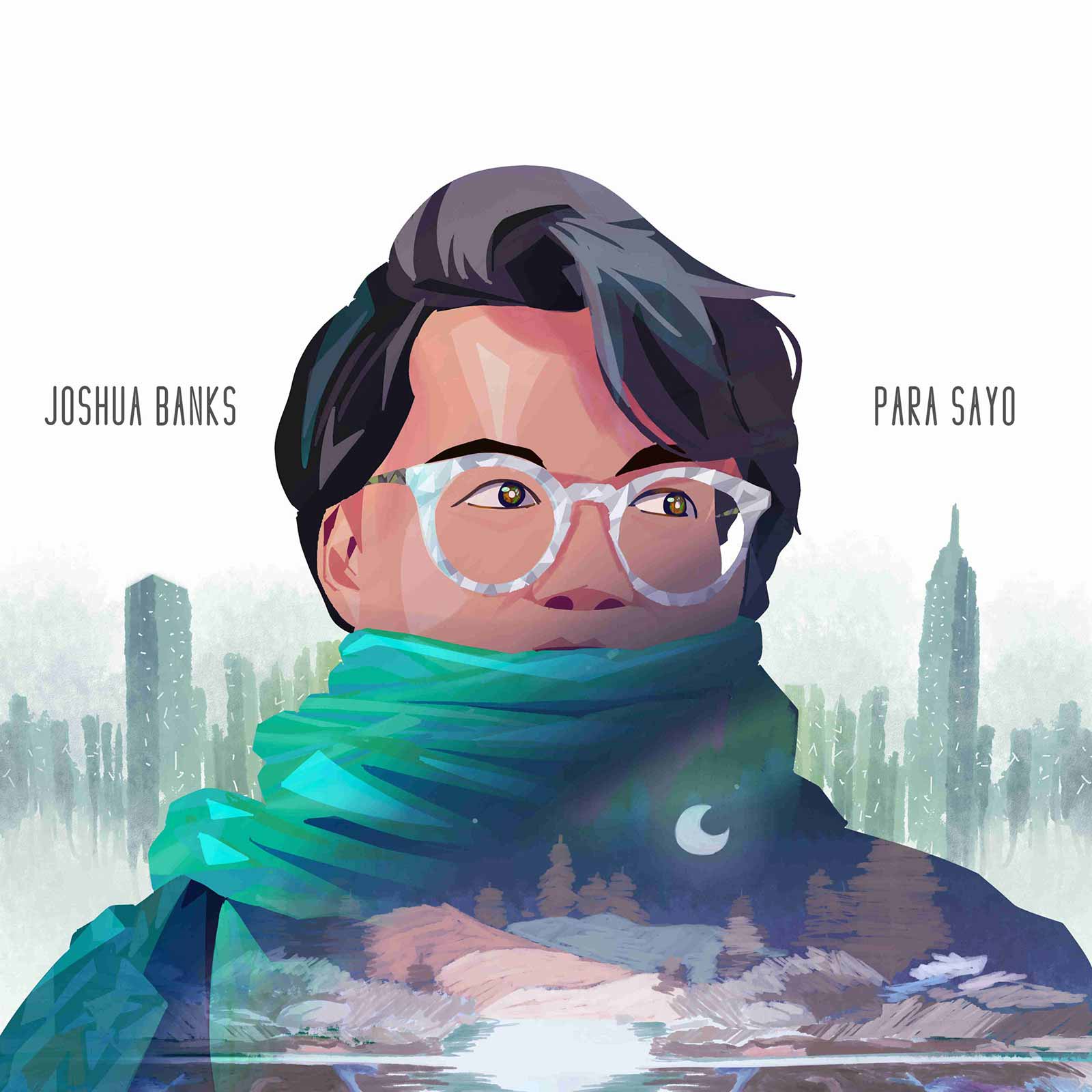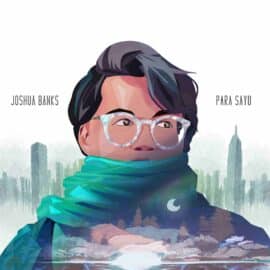| Jazz |

In “Para Sayo,” Joshua Banks Blends Identity, Heritage, and Innovation to Craft a Mesmerizing Debut.
A debut album is always something more than just a collection of tracks. It’s a declaration, of intention, of voice, of purpose. But it can also be a tightrope act: the artist must balance ambition with vulnerability, identity with experimentation. For Canadian composer and multi-instrumentalist Joshua Banks, Para Sayo is precisely that balancing act, executed with the quiet confidence of someone who knows he’s stepping into uncharted waters, and is ready to swim.
Translated as “For You” in Tagalog, Para Sayo is as intimate as its title suggests. The album opens with a track that serves as both overture and overture-of-self, a clear signal of what’s to come.
From the first notes, there is a sense of deliberate design. This is not music that rushes to impress; rather, it glides with grace. There’s a classical structure underpinning the compositions, but the rhythms are distinctly contemporary, layered and textured in a way that feels organic. Nothing is overworked. Instead, everything flows. Listening to the album feels like floating downstream in midsummer: warm, fluid, and unhurried, but always moving forward.
Banks spent two years sculpting this project. Each note, each collaboration, each thematic choice was considered and re-considered. “I needed time to find my own voice,” he says. “Once I knew what I wanted to say musically, the rest started to fall into place.” A pivotal moment in the album’s development came when Banks invited his close friend, the lyricist Hazel Cavida, to contribute. “I asked Hazel to co-write a bilingual piece, in English and Tagalog,” Banks explains. “That was important for me, because while I’m Filipino by heritage, I often feel like I exist at a distance from that identity. I was born here in Canada. I don’t speak the language fluently.
I don’t have memories of the Philippines. So I relied on Hazel, not just to bring in the language, but to help give shape to the emotional and cultural themes I was trying to explore.”
It was Cavida who helped the project expand beyond its sonic ambitions and into something more layered: an exploration of diasporic identity, of longing, of cultural dislocation and re-connection. “When she joined the project,” says Banks, “the album truly came alive. It became about something bigger than me. It became a way to speak to my heritage, to other Asian artists navigating similar paths, and to a broader conversation about belonging.”
That broader conversation is threaded throughout Para Sayo. From jazz-inflected improvisations to ambient textures, from traditional Filipino motifs to cinematic orchestration, the album moves fluidly across genres. But the throughline is always emotional clarity. A particularly powerful moment comes when the saxophone takes the floor. The phrasing, the tone, the breath, it doesn’t just play; it speaks. It’s as if the instrument has found its own language, separate from words but deeply communicative.
The album is also a showcase of young talent from Western Canada. Banks, who studied at several music institutions and maintains ties to local arts communities, intentionally used Para Sayo as a platform to elevate voices often underrepresented in the classical and contemporary music worlds. Among the contributors is his own mother, Corazon Banks, who delivers a spoken-word interlude in Ibaloi, the Indigenous language of her ancestors from the Philippine Cordillera mountains. Her voice, calm and measured, weaves through the arrangement like a thread of memory, anchoring the project in something profoundly real.
“Including my mom wasn’t just a creative decision, it was a personal one,” says Banks. “She carries so much history, so many stories, and speaks a language that is slowly disappearing. That moment on the album, it felt like a gift. For her, for me, for everyone who has ever wondered if their voice, their mother tongue, still has a place in the modern world.”
Indeed, that sense of cultural reclamation permeates the album. But Para Sayo never slips into sentimentality. Instead, it offers something much rarer: emotional precision, guided by artistic restraint. There is power here, but it simmers rather than shouts. And that restraint only makes the emotional payoffs hit harder.
In the end, what makes Para Sayo so compelling is its duality: it is both deeply personal and universally resonant. It tells a story, Joshua Banks’s story, but within it, listeners may find pieces of their own. There’s something precious in that. Something enduring. And while this may be his first full-length release, it already bears the marks of an artist with vision, with something to say, and with the skill to say it beautifully.
If Para Sayo is the beginning, then what comes next for Joshua Banks is worth waiting for. Because if this debut teaches us anything, it’s that the most powerful art doesn’t force itself into the spotlight. It simply lets itself be heard, and trusts that those who need it will listen.
Thierry De Clemensat
Member at Jazz Journalists Association
USA correspondent for Paris-Move and ABS magazine
Editor in chief – Bayou Blue Radio, Bayou Blue News
PARIS-MOVE, May 8th 2025
Follow PARIS-MOVE on X
::::::::::::::::::::::::
Musicians:
Joshua Banks – Piano, Compositions
Connor Milkman – Bass (1, 5, 6, 7)
Kessler Douglas – Bass (2, 3, 9)
Graeme Newburn – Drums (1, 5, 6, 7)
Joel Jeschke – Drums (2, 3, 9)
Dana Anderson – Alto Saxophone (2)
Nick Lange – Tenor Saxophone (5)
Hazel Cavida – Voice (3)
Corazon Banks – Spoken Word (4)
Tea Fannie – Rap (9)
Strings (3, 9): Raphaelle Erdman & Louisa Lu (Violin); Yitian Fan (Viola); Julian Eveneshen (Cello)
Nick Lange – Rhodes (9)
Micah Carter – Field Recording (1, 4, 7)
Tracklist :
1.From My Shoes
2.Go Fish
3.Opo
4.Indemok i Talaw
5.Agila
6.Nature Boy
7.Burning Bridges
8.A Day In the Life
9.Outspoken Lyrics

